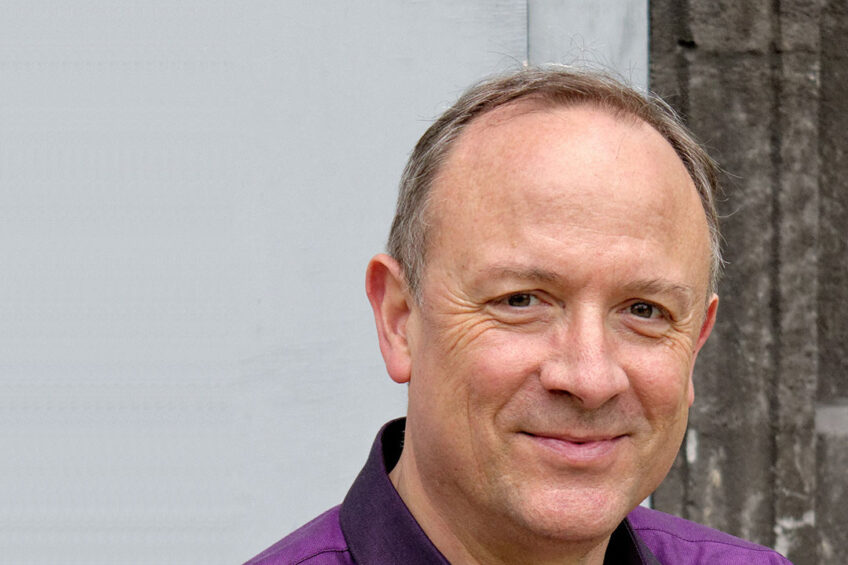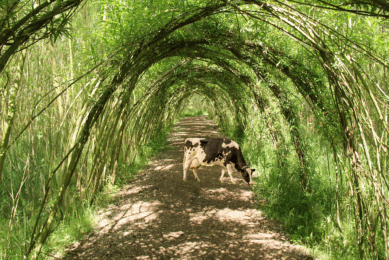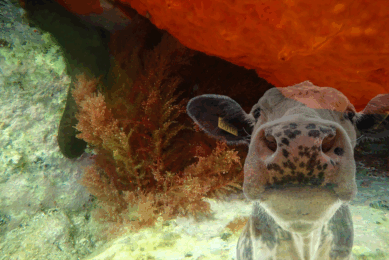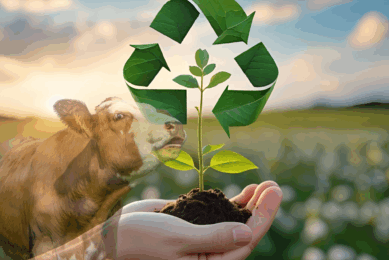Livestock farming is wrongly criticised; the science must be remembered

All About Feed spoke to Jean-François Hocquette Senior scientist of INRAE and President of the French Association for Animal Production about 2 upcoming events and the main theme of these meetings: global sustainability of animal production.
All About Feed: You’re organising a joint International Congress on Animal Science with the European Federation of Animal Science (EAAP), the World Association for Animal production (WAAP) and Interbull. Can you tell a bit more about this collaboration? And the background of this event?
Jean-François Hocquette: The EAAP annual meeting is always organised at the end of August in a European country and attracts between 1,000 and 1,500 delegates depending on the year and location. It generally consists of 70 to 75 sessions on different topics related to livestock (genetics, nutrition, physiology, production of beef or dairy products, pork or chicken production, etc)
The WAAP meeting is organised every 5 years in different world destinations each time, therefore it is exceptional that this year it is organised in Europe and in particular France.
Both EAAP and WAAP bring together mainly scientists whereas Interbull is an organisation of professional geneticists
The combination of these 3 events allowed us to bring together more than 2,000 delegates from over 70 countries.
The main theme of the congress is ‘Climate change, biodiversity and global sustainability of animal production’. Why is this the focus?
Climate change is a hot topic today and all human activities must consider the need to reduce their carbon footprint to become more sustainable. Livestock farming is sometimes wrongly criticised for its contributions to climate change and it is necessary to remember scientific facts. Thereby, climate change and sustainability are the main challenges for the meat and milk supply chain industry for the coming years.
How will the congress help the industry to overcome this challenge and become more sustainable?
Instead of replacing food products of animal-origin with alternatives, it is faster, cheaper, more reasonable and easier to correct the errors of some intensive livestock systems and to promote virtuous livestock systems more respectful of the environment, animals and people.
The first step in this strategy is to share scientific knowledge to lead to indisputable scientific consensus.
We invite you to attend this international meeting to discover new innovative outcomes in different scientific disciplines. You can also attend on-line scientific sessions organised by WAAP.
Do you think there is one particular area of research that needs more attention?
Scientific communication about livestock and food must be rigorous, harmonised and convincing, in order to present the indisputable scientific facts to confront the fake news that is circulating.
In addition, in the context of climate change, interdisciplinary approaches are strongly encouraged due to the increasing complexity of the problems to be solved, plus the numerous interactions between animal physiological functions on one hand and farming practices on the other hand.
Could you outline the programme of the conference?
There are 2 plenary sessions organised by WAAP on Sunday August 31 entitled – ‘Control of Green House Gas emissions in Ruminants farming’ and ‘Biodiversity as a lever for sustainable animal production’.
Another plenary session jointly organised by WAAP and EAAP on Tuesday August 29th entitled – ‘Can we feed the planet without depleting its resources?’.
The rest of the week (Monday August 28th to Thursday August 31st), there will be a total of 94 sessions (10-12 per half day) organised by 11 scientific commissions (animal genetics, animal nutrition, health and welfare, animal physiology, livestock farming systems, cattle production, sheep and goat production, pig production, horse production, insects, precision livestock farming)
You’re also organising a workshop Food and Feed for the Future on the first of September, what is the purpose of this workshop?
Agri-food systems must evolve towards a system of sustainability and resilience to ensure food security and nutrition for all. The status quo is not an option. Major transformations in agricultural systems and natural resource management will be required to ensure a safe and healthy future for all people and the entire planet.
The growing protein demand of the growing global population can only be sustainably addressed by diversifying the protein being offered. The workshop will present and discuss challenges and opportunities for protein production from animals, plant-based sources, and novel protein sources (insects, yeast, and microalgae) and how they can contribute to sustainable food systems. Different options will be discussed to address this problem: they can focus on new technologies such as microbial production to produce more food or they can consider more sustainable land-based food systems.
What do you think the food system of the future will look like?
There are 2 branches of activity currently being developed:
- the marketing of new foods or alternatives to conventional food products from FoodTech approaches;
- the development of a more environmentally friendly agriculture able to produce food of good sanitary, nutritional and sensory quality and in sufficient quantity for the increasing number of human beings while respecting animals, the planet and people.
But are these approaches both viable solutions? Complementary? In competition? Where is it best to invest for the general interest?
What do you hope people will learn during the conference and the workshop? What is the take home message?
This workshop will address the following questions:
- How will the global need for protein be met combining ethical and sustainable agriculture with microbial bioproduction?
- Can microbial bioproduction be considered safe, resilient and non-competitive with land farming?
- What are the modern nutritional approaches to healthy production of animal and human diets in a resource-and carbon-constrained world?
- What are the socio-economic issues of future sustainable agricultural systems?
- How to address the ethical/societal acceptance challenge of food and feed microbial/tissue bioproduction?











